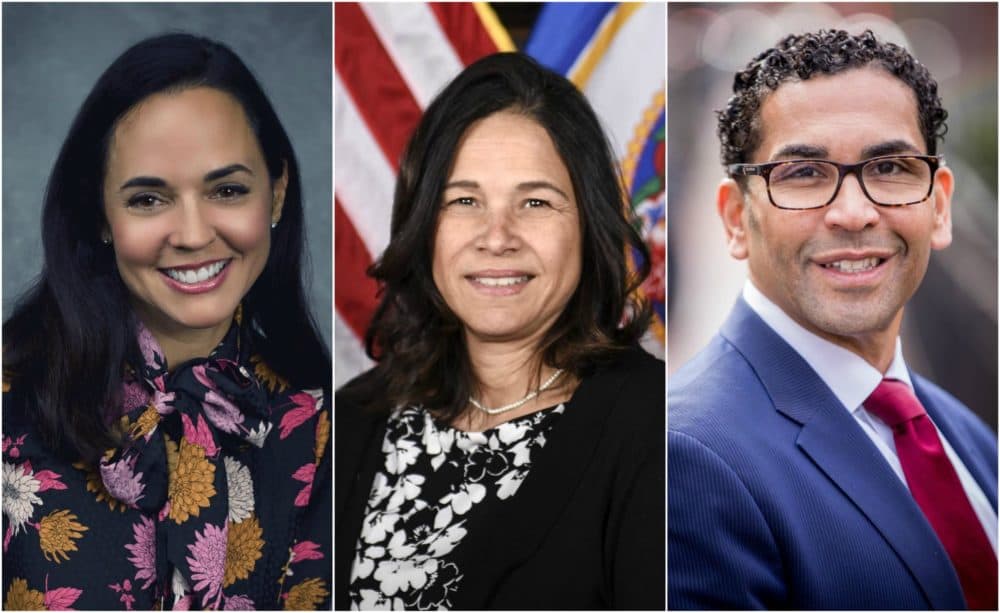Advertisement
Commentary
1 Question For Boston's Next Superintendent: What's The Best Approach To Student Discipline?

There are three finalists being considered for Boston Public Schools next superintendent. As the candidates complete their public interviews this week, one of the questions we ought to be asking is: “How will you approach discipline to reduce school suspensions and eliminate racial disparities in how schools handle kids with behavior challenges?” It’s an urgent question and one that is critical to closing the achievement gap for children of color.
According to the U.S. Department of Education, some 2.7 million kids were suspended from school (2015-2016) for behavior problems, and research shows that students with just one suspension are twice as likely to drop out of school. BPS has a relatively low suspension rate — 2.1% (below the state average of 2.9%) — but that still means more than 1,000 students were removed from school for discipline, and there continue to be disparities between suspension rates of public charter schools and district schools.
It’s essential that the next BPS superintendent be fluent in and supportive of modern approaches to discipline that are based on what we know about brain development. Collaborative Problem Solving, known as CPS, is one example of an evidence-based approach to school discipline. Restorative practices are another.
We say that these children lack the skill, not the will to behave.
Neuroscience research shows that children with behavior challenges typically have delays or gaps in key thinking skills that most of us take for granted. At Think:Kids, founded by Massachusetts General Hospital, we say that these children lack the skill, not the will to behave. These skills include flexibility, the ability to tolerate frustration and the ability to solve problems. Developmental delays, exposure to trauma and other adverse childhood experiences are often the cause. (According to the National Survey of Children’s Health almost half of children in the U.S. have experienced serious childhood trauma.)
For kids with chronic behavior challenges, traditional reward and punishment approaches typically make things worse. Those approaches don’t build critical thinking skills. Too often they result in detention, students being suspended or expelled, over-medicated or physically restrained. Worse, kids lose confidence in themselves and fail to build positive relationships with adults in their lives.
At Think:Kids, we teach adults how to identify and build the skills that all children need to behave well in school and at home. It is an approach focused on empathy and collaboration — and it takes practice — but research shows relational approaches work across a variety of settings. Teachers who use CPS report significantly reduced levels of stress when they are working with challenging students. Schools report that school suspensions, parent/teacher stress, staff and child injuries decline after training. And students also have the opportunity to repair emotional damage caused by trauma and restore strong healthy relationships with adults in their lives.
Advertisement
For kids with chronic behavior challenges, traditional reward and punishment approaches typically make things worse
Most important, CPS helps to elevate the child’s voice — so they become co-problem solvers with adults. It’s an approach that marks a sea change in the way people think about kids with behavior challenges, and an effort to understand each child through empathy and trust.
Imagine a middle school teacher struggling to engage a student whose behavior often disrupts the class. Using the “empathetic listening tools” of CPS, the teacher discovers that the student has a hard time transitioning from the hallway to class — he walks around the class, instead of sitting at his desk, because sitting down makes him feel sleepy. This ability to shift gears is what we psychologists call a self-regulation skill. Together, student and teacher come up with a solution whereby he can complete his independent work while standing as long as he doesn’t interrupt other students. The problem gets solved, the work gets done, the other students aren’t disturbed, the helping relationship between teacher and student deepens, and crucial problem-solving skills are practiced at the same time.
The leadership of several schools in Boston are forming a community of practice around implementing CPS. These efforts represent a collaboration of charter and district schools, including the JP Manning School in Jamaica Plain, the Elliot Innovation School in the North End and Boston Prep in Hyde Park.
In addition to a series of professional development trainings, educators from these schools meet regularly in small teams with experts from the department of psychiatry at MGH. In those meetings, they learn to identify predictable triggers and engage students in structured problem-solving conversations that reduce challenging behavior and help students to build specific thinking skills they lack.
In the coming days, finalists for the BPS superintendent position will be interviewed by panels composed of teachers, parents and community leaders who will pose a variety of questions about academics, social supports, management style, budgets and closing the achievement gap.
Thinking about Boston’s approach to student discipline should also be in the mix. Our children deserve nothing less.
